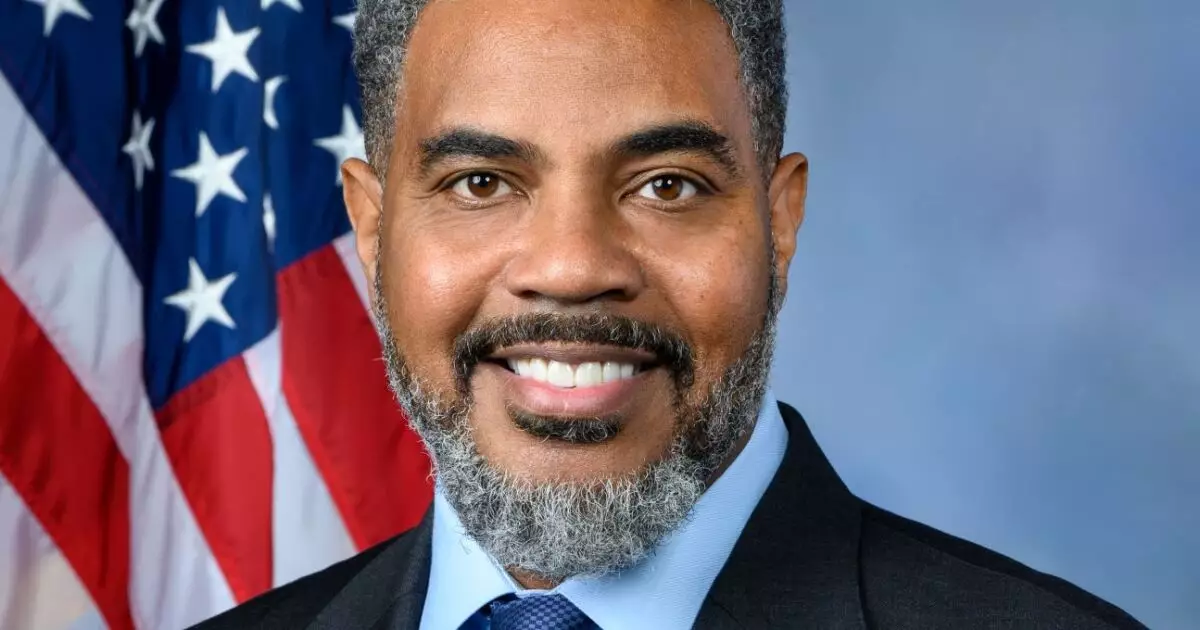The Future of the Ways and Means Committee: Rep. Horsford’s Potential Role and Its Implications

The recent passing of Rep. Bill Pascrell, a prominent Democratic figure in Congress and longtime advocate for public finance issues, has left a significant void in the Ways and Means Committee. Now, the spotlight is on Rep. Steven Horsford, D-Nev., who is anticipated to fill Pascrell’s seat. The late congressman’s death at 87 due to complications from a respiratory illness not only marks a personal loss for his colleagues but also introduces uncertainty into the committee, particularly at a time when key tax provisions are on the brink of expiration.
Horsford, who previously served on the Ways and Means Committee from 2019 to 2023 before the Republicans seized control of the House, is now in a position to return to a pivotal role that influences national fiscal policy. If nominated by the Democratic Steering and Policy Committee and subsequently approved by the caucus, he could lend his experience in both state and national governance to guide legislative efforts related to tax reform and public finance.
One of the unique advantages that Horsford brings to the committee is his comprehensive understanding of tax-exempt municipal bonds and their significance to local governments. His tenure as the Chair of the Congressional Black Caucus and experience in Nevada’s state government ideally positions him to advocate for policies that prioritize community needs.
Brian Egan, director of government affairs at the National Association of Bond Lawyers, asserted that he looks forward to collaborating with Horsford should he reclaim his seat. Egan’s comments underscore the expectation that Horsford’s insight into the municipal bond market can significantly impact the legislative landscape, especially in a post-COVID world where public finance is critical to recovery.
As Horsford potentially re-enters the Ways and Means Committee, he confronts significant legislative challenges, particularly concerning the Tax Cuts and Jobs Act (TCJA), which carries ramifications for various infrastructural projects nationwide. The TCJA, originally established to slant tax benefits towards corporations, sets key provisions such as the $10,000 cap on the state and local tax (SALT) deduction, which has been contentious among bond issuers who argue that it hampers fiscal capacity at the local level.
Moreover, the elimination of advance refunding of tax-exempt bonds remains a controversial issue in the municipal finance community. Policy advocates have sought to reverse this decision, illustrating how the fight over tax policies reverberates across local government capabilities. As the expiration of the current TCJA provisions looms in 2025, critical decisions within the Ways and Means Committee will become a focal point in the broader conversation surrounding tax reform in the U.S.
Beyond his prospective role on the Ways and Means Committee, Horsford’s current political landscape indicates a robust campaign for re-election in Nevada’s fourth district. His opponent, former Las Vegas Mayor John Lee, has garnered substantial endorsements, including from notable figures like former President Trump. Despite the challenges, polling suggests that Horsford is favored to retain his seat, a factor that could further cement his influence on public finance and infrastructure policy if he remains in Congress.
His advocacy for the Infrastructure Investment and Jobs Act, which directed $4 billion towards enhancing Nevada’s infrastructure, showcases his commitment to progressive policy-making that directly benefits his constituents. This project reflects a wider emphasis on improving access to essential services, which is central to Horsford’s platform.
As the landscape of the Ways and Means Committee evolves, its implications extend far beyond simple party representation. The future of key tax legislation hinges on the outcomes of midterm elections and how shifting committee dynamics shape policy priorities. Should Democrats regain control of the House, the committee could see a renewed focus on progressive tax policies, with Horsford at the forefront of these efforts.
Conversely, if Republicans maintain a majority, the status quo may persist under Chair Jason Smith, limiting the opportunities for meaningful reform. Ultimately, the fate of Horsford’s legislative ambitions and the broader municipal finance framework will heavily depend on the interplay between party dynamics and the pressing needs of local communities.
The upcoming months hold promise but are fraught with uncertainty as stakeholders brace for the changes ahead, particularly in light of recent leadership shifts within the Ways and Means Committee. How these elements coalesce will be crucial in determining the effectiveness and direction of future fiscal policies impacting Americans everywhere.





